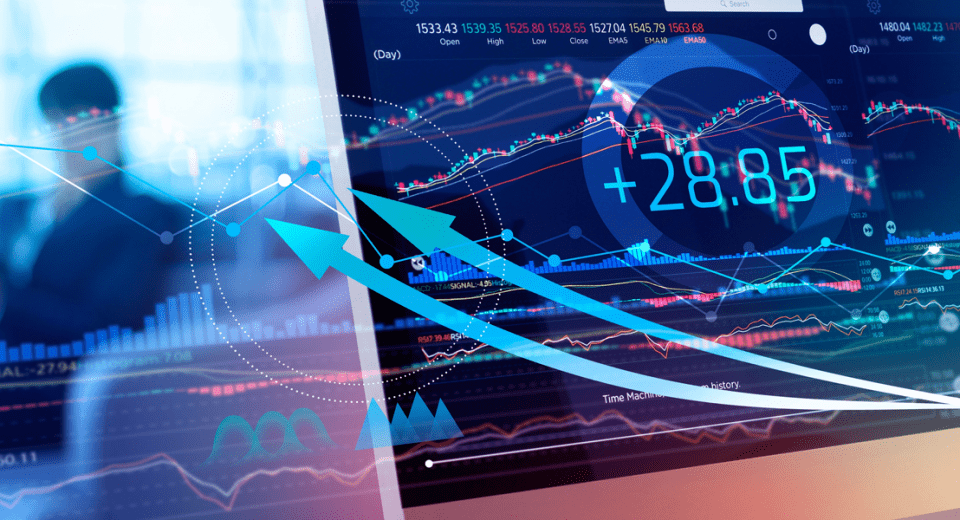Recent years have brought in many new ways of investing and trading. And, even if you prefer to trade stock market indices, there are a lot of alternatives to choose from. Gaining exposure to a stock index is one of the best ways to invest in the stock market. It is easy, cost effective and provides instant diversification.
Trading indices, rather than individual stocks, offers several notable benefits. Firstly, indices offer exposure to an entire industry. Investors do not have to study individual company reports and research the trends. In addition, given that several companies are part of the index, the underperformance of one can be mitigated by the outperformance of another.
Price movement of indices is also less volatile than that of individual stocks, which can see extreme price spikes and plunges. This naturally makes index trading less risky.
If you are still wary of investing directly in an index, there are two ways to indirectly invest – Index ETFs and Index CFDs. Here’s a look at what each type of instrument offers and how they differ from each other.
Index ETFs
Index ETFs or Exchange Traded Funds have been praised as an ideal investment and trading instrument ever since their inception. In simple terms, ETFs are just like mutual funds and are traded on exchanges, like any common stock, thus deriving their name. Index ETFs represent the ownership of underlying assets, such as bonds, stocks, commodities and currencies. When it comes to index ETFs, assets with a common characteristic are usually clubbed together, such as energy stocks, agriculture instruments and so on. So, you can choose a sector-specific ETF for your investment. They normally provide higher daily liquidity and lower fees than mutual funds, which has made them an attractive option for investors.
Here, the investor does not own the underlying asset. They merely speculate on the movement of the index. Index ETFs can be used to make short term profits, although it is important to also remain aware of the associated risks. They are also great for long term investments.
The advantages of trading Index ETFs include diversification, high liquidity, relatively low fees and easy trading, since ETFs are traded on public stock exchanges. Other benefits offered by index ETFs include capital gains tax exemption, special dividend treatment and reasonable liquidity. Brokers also offer low commission rates to ETF traders.
Index ETFs are perfect for investors who are not looking for high leverage, have high capital and are looking for a trading experience to utilise the capital. The components of an ETF balance each other out. If one instrument’s value goes down, another instrument’s value might go up and even things out.
ETF trading strategies like dollar-cost averaging, swing trading, asset allocation, sector rotation, betting on seasonal trends, short selling and hedging offer a wide range of features, making them ideal for beginners.
Index CFDs
Index CFDs or Contracts for Difference are a more recent addition, as compared to Index ETFs. A CFD is a contract between a buyer and seller for a particular asset, where one party agrees to pay the other the price difference between the opening and closing price of the contract. Index CFDs are derivatives, where you usually have to just pay 5% to 10% of the price of the underlying asset to take a position.
Index CFDs helps spread the risk across an entire segment rather than investing in on a single company. This diversifies the investment and takes care of most of the factors that could affect the share price of a single company. Index CFDs are available with both instant and market execution. Your orders are executed without any delay, leading to fast and efficient trading.
Trading CFDs involves speculation on the direction of movement of an index, where the investor agrees to exchange the difference in price between the start of the contract and its end date. Allowing traders to participate in the global financial markets, an Index CFD is a collection of the biggest stocks registered on a specific stock exchange. The best part is that one can speculate on both rising and falling markets.
Benefits of trading in Index CFDs include higher leverage, global market access from one platform, ability to take short positions, out of hours trading and lower transaction costs.
Index CFDs Versus Index ETFs
- Index ETFs have been around for longer than Index CFDs.
- In Index ETFs, you have to pay the full price of the underlying asset, whereas in Index CFDs, you agree to receive or pay the difference in price between the opening and closing dates of the contract.
- With Index ETFs, you can never lose more than your initial investment. However, with Index CFDs, the use of leverage means that both profits and losses will be multiplied.
- Index ETFs are not subject to any interest charges during the period during which you hold them. CFDs, on the other hand, entail an interest for the period that you hold the derivative because they are a margined product.
- If the value of the underlying index of a CFD exceeds the amount in your account, the broker may request you for more money. They do this to protect their own interests against the risk of default. Index ETFs have no such provision.
- Index CFDs are usually used for short-term strategies, whereas Index ETFs are usually used to yield smaller gains over a longer period of time.
- Index CFDs have high risk and high reward potential, whereas Index ETFs are usually meant for smaller gains over a long period of time.
Both Index CFDs and ETFs offer exciting opportunities, although only if adequate risk management measures are put in place. You need to have good knowledge of the underlying assets of the index and understand your risk appetite before investing in these instruments.
Disclaimer
Trading leveraged products involves a high level of risk. 71% of retail investor accounts lose money when trading CFDs with this provider. You should consider whether you understand how CFDs work and whether you can afford to take the high risk of losing your money.





